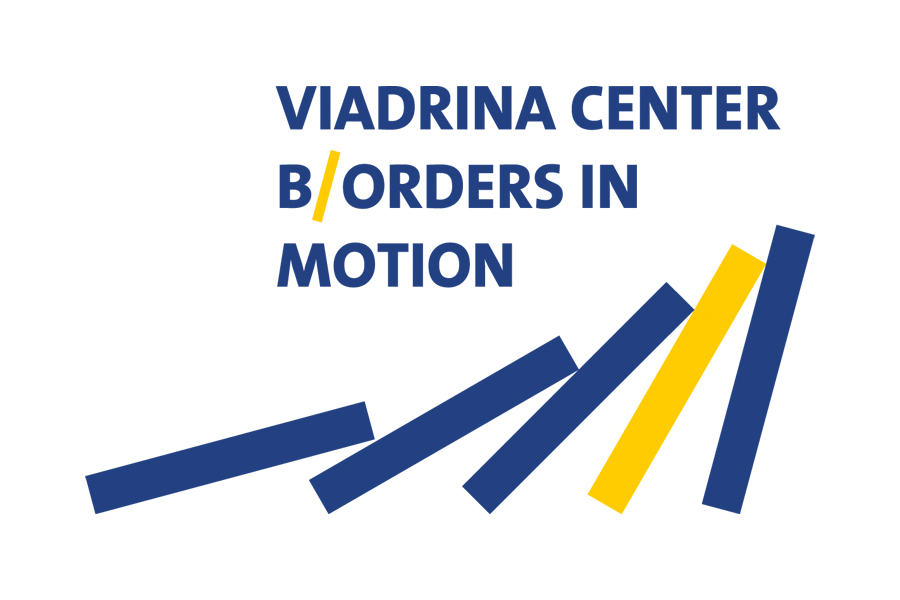Data Matters: Sociotechnical Challenges of European Migration and Border Control (DATAMIG)
details
Project lead:
-
Prof. Dr Aristotelis Tympas, National and Kapodistrian University of Athens (tympas@phs.uoa.gr)
Cooperation partners:
- Dr Silvan Pollozek (Research Associate, Chair of Sociology of Technology, European New School of Digital Studies, EUV)
- Prof Vassilis Tsianos (Kiel University of Applied Sciences, Germany)
- Dr Bernd Kasparek (Humboldt-University Berlin [Berlin Institute for Empirical Integration and Migration Research], Germany)
- Prof Stephan Scheel (Leuphana University Lüneburg [Institute of Sociology], Germany)
- Prof Torsten Voigt (RWTH Aachen University [Institute of Sociology], Germany)
- Prof Brigitta Kuster (Humboldt University of Berlin, Germany)
- Dr Fredy Alberto Mora Gamez (University of Vienna [Faculty of Social Sciences], Austria)
- Prof Nicos Trimikliniotis (Symfiliosi, Cyprus)
- Dr Zuzana Uhde (Czech Academy of Sciences, Institute of Sociology - Institute of Sociology CAS [Gender and Sociology], Czech Republic)
- Dr Vasilis Galis (IT University of Copenhagen [Business & IT], Denmark)
- Dr Martin Bak Jørgensen (Aalborg University - Aalborg University [Culture & Learning ], Denmark)
- Prof Anu Masso (Tallinn University of Tecnology, Estonia)
- Prof Ilpo Helén (University of Eastern Finland - University of Eastern Finland [Department of Social Sciences], Finland)
- Mr Nikos Morfonios (Mediterranean Institute for Investigative Reporting [MIIR], Greece)
- Dr Olga Lafazani (National Hellenic Research Foundation [Institute of Historical Research], Greece)
- Dr Manolis Simos (National and Kapodistrian University of Athens [Department of History and Philosophy of Science], Greece)
- Dr Katerina Vlantoni (National and Kapodistrian University of Athens [Department of History and Philosophy of Science], Greece)
- Dr Christos Kouroutzas (University of the Aegean [Department of Sociology], Greece)
- Dr Ioulia Mermigka (National and Kapodistrian University of Athens [Digital Arts and Cinema Department], Greece)
- Dr Olga Usachova (University of Padova [PASTIS], Italy)
- Prof Birte Nienaber (Université du Luxembourg)
- Prof Amade M'charek (Universiteit van Amsterdam, Netherlands)
- Dr Robert Rydzewski (Uniwersytet im. Adama Mickiewicza w Poznaniu - Adam Mickiewicz University [Centre for Migration Studies], Poland)
- Dr Nina Amelung (Universidade de Lisboa] [Instituto de Ciências Sociais], Portugal)
- Dr Gaia Giuliani (Centro de Estudos Sociais - University of Coimbra - University of Coimbra [Centro de Estudos Sociais], Portugal)
- Ms Susana Ferreira (Universidade NOVA de Lisboa - Instituto Português de Relaçoes Internacionais, Portugal)
- Dr Filipa Queirós (Centre for Social Studies [Centre for Social Studies], Portugal)
- Dr Irina Culic (Universitatea Babes-Bolyai - Universitatea Babeș-Bolyai [Facultatea de Sociologie si Asistenta Sociala], Romania)
- Mr Stevan Tatalovic (Info Park, Romania)
- Dr Mojca Pajnik (The Peace Institute, Slovenia)
- Dr Karin Krifors (Linköping University - Karin Krifors [REMESO], Sweden)
- Dr Matthias Leese (ETH Zurich - Department of Humanities, Political and Social Sciences, Switzerland)
- Dr Cenk Saraçoğlu (Ankara University [Department of Journalism, Turkey)
- Dr Sibel Karadag (Kadir Has University [Political Science and Public Administration], Turkey)
- Dr Arely Cruz-Santiago (University of Exeter [Sociology, Philosophy and Anthropology], United Kingdom)
- Dr Matthias Wienroth (University of Northumbria [Social Sciences], United Kingdom)
- Dr Claudia ARADAU (King's College London [War Studies], United Kingdom)
- Dr Gavin Sullivan (The University of Edinburgh - Edinburgh Law School, The University of Edinburgh [Law]), United Kingdom)
- Prof Debbie Lisle (Queen's University Belfast, United Kingdom)
Funding:
COST European Cooperation in Science and Technology (CA 22135)
Project duration:
09/2023-09/2027
Website
Project description:
Issues pertaining to the control of migration and borders are of paramount importance for contemporary societies. The way the relevant technology is designed and used is central to these issues. The configuration of migration and border control increasingly relies on artificial intelligence and associated digital technologies, which are based on algorithms that feed on big data. DATAMIG is focused on the need for a caring approach to big data and for the socio-technical challenges it entails. More specifically, it aims at supporting interdisciplinary research into the ways that the technological materialities inherent to the datafication of migration and border control may, on account of their black-boxed design, reproduce patterns of inclusion and exclusion that have already severely affected society. DATAMIG will foster the formation of an inclusive, self-expanding network that integrates the various disciplines contributing to the field of Science and Technology Studies (STS, with sociology of science and technology at its core) into the study of migration and borders. This will allow the latter to benefit from a unique interdisciplinary collaboration with other pivotal scientific/technical fields, including but not limited to critical Data Studies. DATAMIG will usher in building an interdisciplinary vocabulary to make data a public matter of concern and care, through research that benefits from bringing together previously disconnected arenas of contestation and public interventions concerning data matters in European migration and border control.
